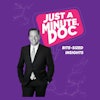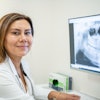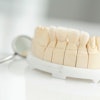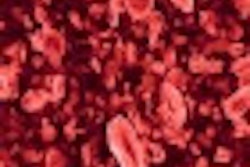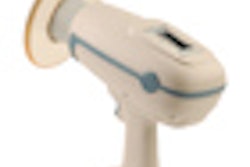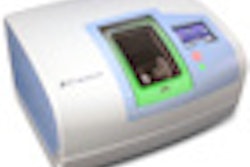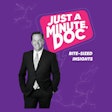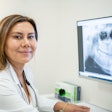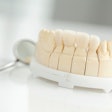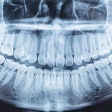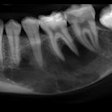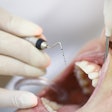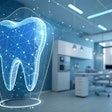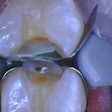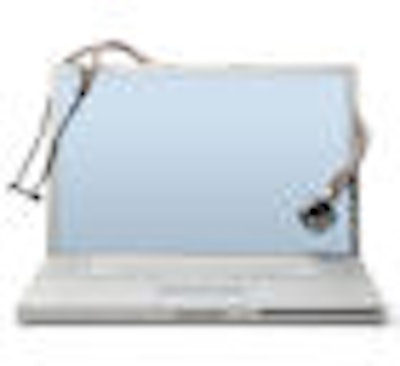
The U.S. is not alone in its efforts to implement healthcare reform these days. Several European countries are also looking for ways to improve their health care delivery systems -- dental as well as medical. And like the U.S., many of these reforms involve implementing digital data-collection and data-sharing technologies.
Europe's medical and dental sectors lag behind other service industries by about a decade when it comes to the adoption of digital technologies, with most document exchange still paper-based. Until the last few years, for security reasons computers in medical and dental practices were not allowed Internet access, and even now most patient data continues to be shared by mail, fax, and, to some extent, e-mail. Valuable time is lost, examinations are needlessly repeated, and conferencing using shared access to digital x-rays and electronic patient data is virtually unknown.
But in an effort to improve quality and reduce health care costs, Germany -- which boasts the largest healthcare system in Europe -- has embarked on a comprehensive e-health initiative that will eventually link some 80 million patients with 300 health insurance companies, 2,200 hospitals, 21,000 pharmacies, 123,000 physicians, and 65,000 dentists.
Personal health data
One of the first components of this undertaking is an e-health card ("Gesundheitskarte"), mandated by the Law for the Modernization of Statutory Health Insurance that was passed in 2003. Under the direction of Gematik, the agency established to oversee Germany's national health care IT efforts, the e-health card initiative was first rolled out in the North Rhine region earlier this year.
 |
| Administrative data are stored in a microprocessor chip embedded in the card; patients can also have personal medical data added. |
Designed to function as a key-card to the patient's health record, in the first phase the card only helps to identify the patient and his or her insurance status more accurately than before. Administrative data are stored in a microprocessor chip embedded in the card, which also features a photo of the cardholder to reduce fraudulent use of lost or stolen cards. The card also doubles as a European Health Insurance Card, enabling the holder to receive medical treatment when visiting other European countries.
Patients can also consent to additional information being stored on the card, such as emergency personal data regarding chronic diseases, pharmaceutical incompatibilities, and allergies; discharge notes/letters containing findings, diagnoses, recommended therapies, therapy reports, etc.; documentation of pharmaceuticals prescribed by doctors and pharmacists; their electronic health record, including radiographs; personal health information; and receipts for medical care.
In addition to the new patient-oriented card, a centralized Health Professionals Data Base is being established to issue Health Professional Cards (HPCs) to all doctors and dentists who want or need access to electronic patient records. While the patient card can also hold health data useful for emergency treatment or prescriptions, the HPC is intended strictly as an electronic signature card only.
In order to coordinate this effort, physicians, dentists, and other health care providers will have to be online to synchronize all the personal (but not medical) data on the card with the patient's insurance records. Practices and hospitals must also install new -- temporarily subsidized -- card-readers and connectors. Only registered and certified equipment can be used. This is to ensure transport of the encrypted data through encrypted channels over virtual private networks only -- not the Web -- for maximum protection of patient data.
Security concerns
With patient privacy of paramount concern, the e-health cards use hybrid encryption that combines symmetric and assymmetric procedures. Patient autonomy over their records is safeguarded by the requirement to key in a PIN code in addition to the doctor's. Only when both the patient's and doctor's cards are present and the PIN code has been keyed in can the confidential and encrypted data be accessed. This way no patient can be forced to disclose data to a third person who does not identifiy himself with an HPC and PIN number. Legislation ensures that not even legal entities can access these records by making it a criminal offense to confiscate the patient card.

But while most German hospitals are embracing the e-health concept without much ado, many health professionals remain wary. The initial rollout of the cards in April was hampered by the refusal of many doctors to buy the necessary card readers. In addition to concerns about data security, reservations include the increasing costs practices have to carry to keep up with such developments; the need to backup, migrate, or archive ever more data; and related staff training.
Still, there is an air of inevitability, with regional dental associations generally supporting the project, albeit somewhat reluctantly. Dentistry is moving so swiftly from a 2D to a 3D reality that the implementation -- and acceptance -- of a fast and secure electronic infrastructure has become a necessity. German dentists nowadays regard themselves not just as fixers of dental problems but as dental medicine experts, focusing on all aspects of a patient's health and treatment requirements. Teleconferencing between the dentist, lab, orthodontist, maxillofacial-surgeon, endodontist, prosthodontist, implantologist, and physician will ensure optimal treatment outcomes and avoid unneccessary delays and errors.
As in the U.S., these technologies can also improve access to care for underserved populations, given that it is less costly to move data than to move people. Tools for efficiently and safely doing so are either already in place or being developed.
Looking ahead, while some irritation was caused by the inclusion of a clause about the e-health project in the coalition treaty for Chancellor Angela Merkel's new administration, some of those opposed to the project -- including the German Dental Association -- prematurely announced the project's end. The new Federal Health Secretary, Philipp Rösler, has made it clear that the rollout of the e-health card will continue.
